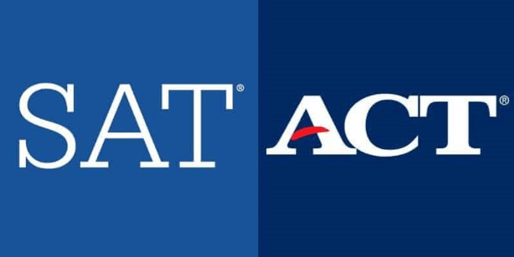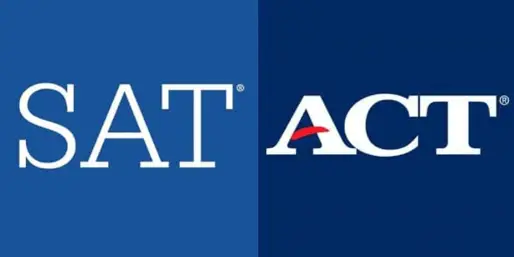Neal Schwartz
- 15 Dec, 2020
- 0 Comments
- 5 Mins Read
ARE THE SATS AND ACTS STILL NECESSARY?

Due mostly to the pandemic, nearly 75% of colleges have gone the test optional approach, many of which are extending test optional policies forward several years. The question of how important the SAT and ACT tests will be for the upcoming graduating classes has resulted in many opinions. Is the pivot to test optional for college admission going to be a temporary or long-term situation? To predict what may happen, it is wise to take a broader historic view.
Why was test optional even a “thing” before the pandemic?
Some colleges found that test optional allowed students greater flexibility to demonstrate their strengths, factoring in other indicators than test scores. Finding that scores were not the only indicators of future college success, these colleges were passionate about being fair with applicants and developed a “holistic” application review. Furthermore, tests were not thought to address diversity and economically disadvantaged students, who had less access to tutoring. Finally, going “Test Optional” could make colleges more attractive to students who had always struggled with standardized tests—In effect, it would increase the marketing reach for those colleges that were on test optional lists.
Are the SAT and ACT tests fair?
This question has been around for decades, mostly due to historical controversies over gender and economic bias that have been highlighted and addressed over the years. With the SAT having a competitor test maker, the ACT, there were significant changes made to both tests and one could argue they are more fair today than they were decades ago.
What is the current issue with testing?
Due to long gaps in available testing locations, students who may have been able to take 2 to 3 tests in a normal year may only have been able to sit for 1, at most. However, more inequalities have arisen from the fact that to take the actual test, some affluent students decided to travel to other states. What about those that couldn’t travel or afford to travel?
So, what developed was a shift from “Is the test fair?” to a relatively quiet period of acceptance back again to “is the test fair?”. However, now parents are contending with the question as to the necessity of the test in general: “If most schools have gone test optional for admissions purposes, why does my son/daughter need to take the test?”
Test Optional vs. Test Blind
One can easily get lost in the testing lingo, but it’s important to know that test optional is NOT the same as test blind.
Test optional means that an applicant will be considered for admission without a test score submission.
Test blind means that the applicant will be considered without test scores. In the situation where a student has excellent test scores and submits them, they will not be looked at.
Most test optional schools will still look at student scores if submitted. In fact, for the recent Early Decision/Early Action applications at test optional schools, about 50% of students were still submitting test scores.
Yes, there are clearly schools that are working tirelessly to review a candidate more intensely for admission in the absence of a test. To make their review thorough, some have added additional essays or required other substantiation of the student’s academic abilities. However, this comes at a time when students have also been constrained by their limited extracurricular activities and had a shift to online teaching which did not always work well with certain teachers and subjects.
GPA as a measurement in place of testing
It is widely accepted that the actual student performance and GPA does matter. What is also accepted is that there is wide-ranging grade inflation and that it is harder to identify students with truly low grades. For example, a grade of 2.7 in prior years now relates to a 3.3. Basically, the spread between top and low grades has narrowed. So GPA alone has less value than it did decades ago and that is why I see tests as a fair way to measure and determine ability.
Pluses of SAT/ACT tests:
If a school can trust the SAT/ACT to be fair, it will save admissions officers incredible amounts of time in their decision making process—especially for the larger colleges and universities with tens of thousands of applications to review.
Soccer trophies and Test Scores:
Somewhere around the 1990s and 2000s, our society swung the pendulum to be fair with many things. For example, trophies were purchased and delivered to every soccer player on a child’s team regardless of individual ability. Some high schools decided to have multiple valedictorians, something that had never happened before. Basically, the hard decisions were getting watered down. If something had even a hint of unfairness, or forced a difficult decision, it was removed or cut. Once the pandemic hit, the Public College system in California decided that it had to be fair with the testing requirement and went test blind for the entire state. Was that fair for the students who studied, whether in the most affluent or impoverished areas, who could now not submit their scores? And by not submitting their scores potentially shortchanging their academic story?
As mentioned by another Westchester tutor at starlingtutoring.com/act, there may be reason to believe that the strain placed on admissions offices due to schools becoming test optional may cause them to view applications with a strong SAT or ACT score more favorably than before. By having a strong score, you are solving a problem for your admissions officer.
The verdict
I think that test optional will be here to stay in most of the schools that switched when it was clear how difficult it would be to find a test site during the pandemic. But, I think accepting test scores from students who pursue the tests will continue to be encouraged and play an important role for schools to manage their incoming classes.
Sign up now for the SAT or ACT
The test dates for 2021 are as follows:
SAT: March 13, May 8, June 5
ACT: February 6, April 17, June 12, July 17 (not available in New York)
Having an extra hand on a testing plan could be just what your student needs. Give us a call to schedule a free consultation today!
Best Regards,

Neal Schwartz, Owner
College Planning of Westchester
[email protected]
914-273-2353 (office)
914-500-5899 (mobile/text)
NOW IN OUR 19TH YEAR

NOW REGISTERING FOR OUR:
COLLEGE COUNSELING PROGRAM AND SAT/ACT TEST PREP PROGRAMS
NOW IS THE BEST TIME FOR TEST PREP AND COLLEGE APPLICATIONS
Register Today









